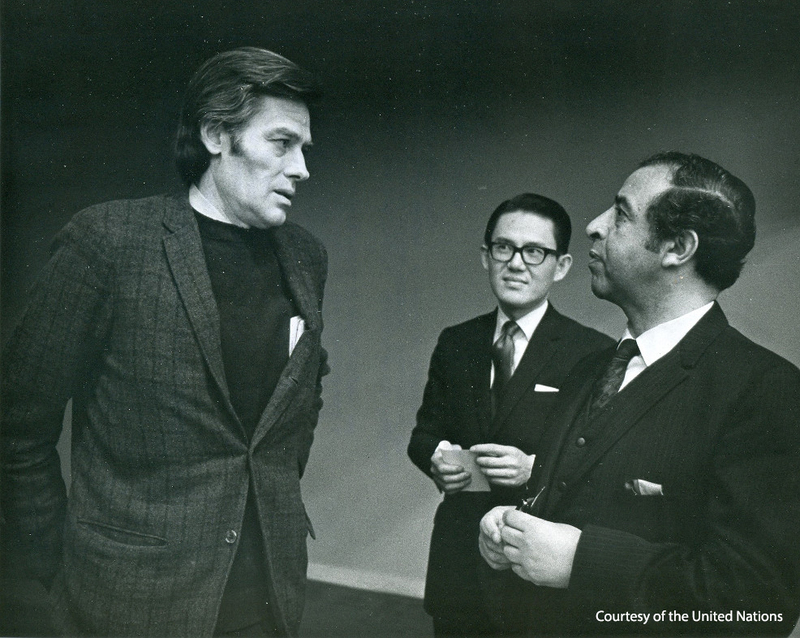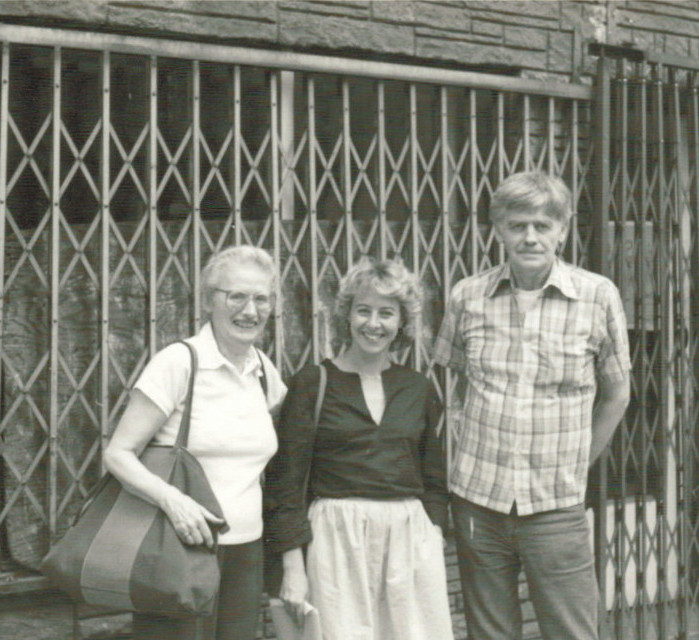Leadership Gallery
William Overton Johnston, 1921-1998
William Overton Johnston was one of the founders and later the director of Episcopal Churchmen for Southern Africa (later renamed Episcopal Church People for Southern Africa to be more inclusive). He devoted his life to dismantling Apartheid in South Africa and racism in the United States. His passionate devotion and advocacy to those causes inspired some who shared in his conviction and challenged others deeply.
Johnston was born in 1921 to a prosperous family in Henderson, Kentucky, but in the early 1930s, his mother divorced her husband and took William with her to Manhattan, where she established herself as a writer. Both mother and son were exposed to the blatant racism of their segregated home-town, but in Manhattan, Johnston’s assumptions about race were challenged and gradually his views changed.
William Overton Johnston was one of the founders and later the director of Episcopal Churchmen for Southern Africa (later renamed Episcopal Church People for Southern Africa to be more inclusive). He devoted his life to dismantling Apartheid in South Africa and racism in the United States. His passionate devotion and advocacy to those causes inspired some who shared in his conviction and challenged others deeply.
Johnston was born in 1921 to a prosperous family in Henderson, Kentucky, but in the early 1930s, his mother divorced her husband and took William with her to Manhattan, where she established herself as a writer. Both mother and son were exposed to the blatant racism of their segregated home-town, but in Manhattan, Johnston’s assumptions about race were challenged and gradually his views changed.
Johnston enrolled in Columbia University, but ran out of money quickly and was forced to support himself with odd jobs and help from his relatives. Later in life he would point to this experience as a cause of his life-long compassion for the poor. He never graduated, but he found steady work with a firm doing business in South Africa, Zimbabwe (then Rhodesia), and the Congo. During this period, Johnston–a cradle Episcopalian–took solace in the Church, and was inspired by the social-justice theology preached by Episcopalians like the James Pike and Kilmer Myers. In 1956 Johnston was galvanized by hearing exiled South African priests describe the effects of Apartheid, and he called a meeting to organize Episcopal aid to the Anglican Church in South Africa.
Out of this and several more meetings, Episcopal Churchmen for Southern Africa (ECSA) was born, and Johnston became its Secretary. Initially the volunteer-run organization focused on sending books and clothing, and organizing days of prayer. Prompted by escalating violence, however, in 1960 ECSA sent out their first mass appeal for funds, and raised $20,000 to send to Anglican leaders in South Africa; this was followed by letter-writing campaigns and events to raise awareness, and in 1963 ECSA began a companion-parish program, sending money, food, first aid supplies, and once a car to new African parishes.

William Johnston, President of Episcopal Churchmen for South Africa (ECSA), talks with Abdurrahim A. Farah (right), Chairman of the United Nations Special Committee Against Apartheid. A staff member of the U.N. Center Against Apartheid looks on. Johnston testified before the committee in 1971 regarding the South African government's actions against churchmen. Photo courtesy of the United Nations.
Together with other organizations such as ESCRU (Johnston became a member in 1959), ECSA was instrumental in the push for the Church to divest from banks and corporations collaborating with the Apartheid regime. Johnston felt that the Church’s position was not radical enough, and during the seventies and eighties, as ECSA’s activities were increasingly marginalized, he believed that his primary role was to act as a spur to the Church’s conscience.
William Overton Johnston died in 1998, four years after the end of Apartheid, having devoted over 40 years of his life to the cause of human rights and racial equality. He was a tireless advocate and possessed an intensity that often alienated others equally devoted to anti-racism. Still, after Johnston’s death Archbishop Desmond Tutu wrote in praise: “None could rival Bill for passion and untiring engagement... We give thanks and praise to God for this outstanding servant of the Lord. We are where we are today because of him.” [Sources]


